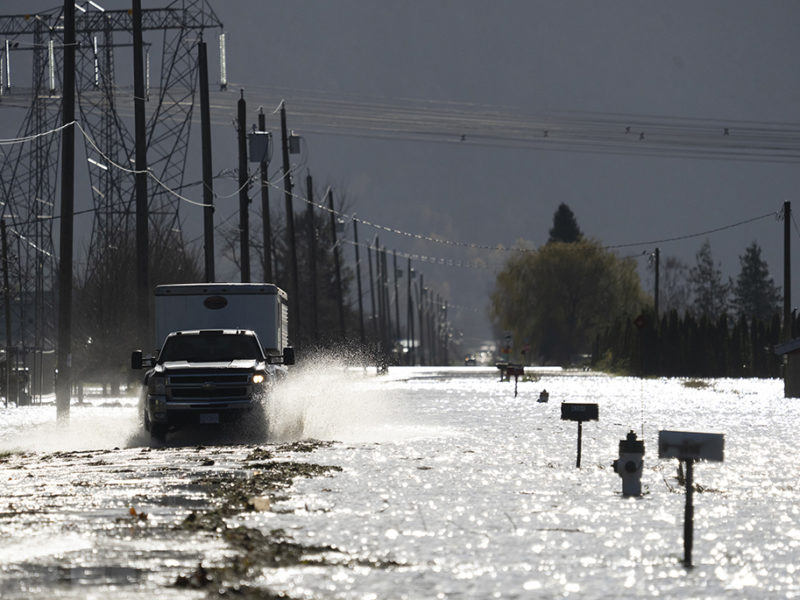This fall’s rains started late and have yet to put a significant dent in the ongoing drought affecting much of the province this year.
Eight of the province’s 34 basins remain ranked Level 5, the most severe drought level, with a further six ranked Level 4.
By this time last year, the province had received twice its usual autumn rainfall, and November would bring more – and worse – of the same.
Now, a report from the Senate Standing Committee on Agriculture and Forestry regarding last fall’s flooding in BC lends support to many of the initiatives already under way.
The report’s three recommendations, developed following presentations and submissions received from 23 individuals and organizations between April 29 and June 15 (all of which are available online), urge the development of a comprehensive flood control plan for the Fraser Valley, provision of adequate financial supports during the recovery and rebuilding period, and greater cross-border co-operation with respect to managing transboundary waters.
The lack of an overarching flood plan for the Fraser Valley is something reports for the Fraser Basin Council and others have flagged as a key issue for several years, with upgrades to the Lower Mainland’s 600 km of dykes being a central issue.
According to the Fraser Basin Council, the direct impact to Fraser Valley agriculture of flooding similar to the 1894 freshet would approach $1 billion; the region as a whole would suffer $32 billion in losses.
The toll of last year’s flooding – which covered just a fraction of the area impacted in 1894 – is pegged at more than $5 billion. To address the issue, Abbotsford has proposed a massive flood mitigation project estimated at $2.8 billion.
With respect to financial supports, BC’s Office of the Ompudsperson recently launched a review of emergency support programs to determine their effectiveness. Federally, this summer’s meeting of federal-provincial-territorial agriculture ministers pledged reforms of business risk management programs to ensure their responsiveness to climate risks.
The senate report also advocates for better international co-operation with respect to the Nooksack River, something representatives of BC and Washington initiated this past March. It builds on long-term efforts of the multi-agency Nooksack River Transboundary Technical Collaboration Group.


 CFIA simplifies AI protocols
CFIA simplifies AI protocols